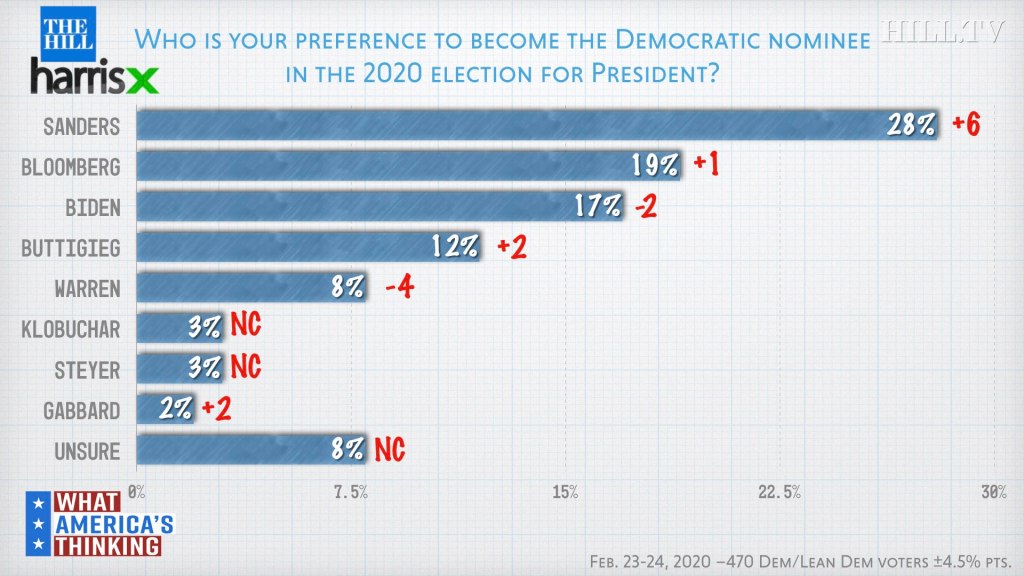
Sen. Bernie Sanders (I-Vt.) is seeing increasing support in the latest Hill/HarrisX national poll following his big win in the Nevada caucuses last weekend.
Sanders received 28 percent support among registered Democratic and Democratic-leaning independent voters in the Feb. 23-24 survey, a 6 percentage point jump from last week’s numbers.
Former New York City Mayor Michael Bloomberg overtook former Vice President Joe Biden for second place. Bloomberg ticked up 1 point from 18 percent to 19 percent, while Biden fell to 17 percent support from 19 percent.
Former South Bend, Ind., Mayor Pete Buttigieg (D) ticked up 2 points to 12 percent in the poll, while Sen. Elizabeth Warren (D-Ma.) dipped 4 points to 8 percent.
Sen. Amy Klobuchar (D-Mnn.) and venture capitalist Tom Steyer received 3 percent support each in the survey while Rep. Tulsi Gabbard (D-Hawaii) received 2 percent support.
Eight percent of voters were still unsure.
Seven Democratic presidential candidates are gathering in Charleston, S.C., on Tuesday night for the tenth Democratic debate, just a few days before the state’s primary election.
Biden has held a lead in polls in South Carolina, but Sanders has closed the gap, according to the latest South Carolina polls.
Though Sanders seems to be riding on post-Nevada momentum and a promising outlook heading into Super Tuesday, some experts believe the contest isn’t yet a done deal.
“While Bernie is beginning to put together an impressively diverse coalition that includes a plurality of black and brown voters, his inability to attract the same level of support from white voters, older voters, and from Democrats more broadly, is the reason he seems to plateau around 30 percent in every poll,” Terrance Woodbury, Democratic pollster and Partner of Hit Strategies, told The Hill.
“With multiple well-funded candidates with the resources to remain in the race for the long haul, this is the formula for a brokered convention where no one emerges with a clear majority of delegates,” he added.
The Hill-HarrisX poll was conducted online among 470 registered Democratic and Democratic-leaning independent voters between Feb. 23 and 24. It has a margin of error of plus or minus 4.5 percentage points.
—Gabriela Schulte
Copyright 2023 Nexstar Media Inc. All rights reserved. This material may not be published, broadcast, rewritten, or redistributed.
